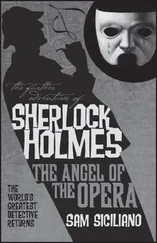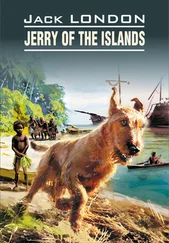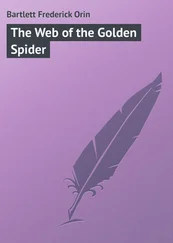Ahern, Jerry - The Web
Здесь есть возможность читать онлайн «Ahern, Jerry - The Web» весь текст электронной книги совершенно бесплатно (целиком полную версию без сокращений). В некоторых случаях можно слушать аудио, скачать через торрент в формате fb2 и присутствует краткое содержание. Жанр: Старинная литература, на английском языке. Описание произведения, (предисловие) а так же отзывы посетителей доступны на портале библиотеки ЛибКат.
- Название:The Web
- Автор:
- Жанр:
- Год:неизвестен
- ISBN:нет данных
- Рейтинг книги:4 / 5. Голосов: 1
-
Избранное:Добавить в избранное
- Отзывы:
-
Ваша оценка:
- 80
- 1
- 2
- 3
- 4
- 5
The Web: краткое содержание, описание и аннотация
Предлагаем к чтению аннотацию, описание, краткое содержание или предисловие (зависит от того, что написал сам автор книги «The Web»). Если вы не нашли необходимую информацию о книге — напишите в комментариях, мы постараемся отыскать её.
The Web — читать онлайн бесплатно полную книгу (весь текст) целиком
Ниже представлен текст книги, разбитый по страницам. Система сохранения места последней прочитанной страницы, позволяет с удобством читать онлайн бесплатно книгу «The Web», без необходимости каждый раз заново искать на чём Вы остановились. Поставьте закладку, и сможете в любой момент перейти на страницу, на которой закончили чтение.
Интервал:
Закладка:
"Michael!" "Keep going. Come on, Momma!" he shouted, water splashing across his open mouth, making him cough. Sarah was reaching, pulling, tugging, reaching, pulling, the shoreline still speeding past as she was pulled down by the current; but the shoreline somehow looked closer.
Michael was pulling at her, pulling at Annie—she couldn't understand what drove him.
She kept moving her arms, not really conscious of them anymore, not knowing if it was doing any good.
Left arm, right arm, left arm . . . She wanted to sleep, to open her mouth to the water.
She kept moving, her legs too tired now to push her.
Something hard, harder than the water hit at her face and she looked up—red clay, wet and slimy and . . . she wanted to kiss it.
Her left arm reached out, then her right, dragging Annie. The little girl was coughing, almost choking. Sarah slapped her on the back. "Annie!"
Annie slumped forward into the muddy clay and rolled onto her back, crying—alive.
"Michael!"
He wasn't there—he wasn't—"Michael!" She screamed, coughing, getting to her knees, slipping in the mud. She saw a dark spot on the water, staring into it.
His hair—dark brown, like his father's. "Michael!!" she screamed, tears rolling down her cheeks. Jump in and save him—yes, she thought. But if she died—Annie?
"Mich—" His head went below the surface and she died, but it was up again and his arms waved above the surface and he was coming toward her.
Sarah waded out into the water which thrashed around her waist. She tugged at the thong holding the saddlebags to her, loosed it awkwardly, then hurtled the bags to the shore, shouting to Annie, "Stay there, Annie!"
"Is Michael alive?"
Michael reached toward her and Sarah snatched at his hand. The boy came into her arms, both of them falling; then Sarah pushed them up toward the shore. Michael coughed.
"He's alive, Annie," Sarah whispered.
Michael hugged her, coughing still, and then Annie's arms were around her neck and the little girl was laughing and Sarah was laughing too. She whispered, 'Thank God for the Y.M.CA. pool!"
Rourke sat sipping the coffee.
"So when the war broke out—well we were always pretty cut off from the outside world, but we knew about it. The television reception here was never very good, but we lost the television stations, then the radio stations we could get. We knew ... all of it, as it happened. We sat up through the night in the town square, most of us, and we could see the lights on the horizons around the valley. We knew what was happening. We all sort of decided that living in a world that had been destroyed wouldn't be living at all. All but six families—and they left. They're probably dead now. See, we don't raise much more than what we have in truck gardens. The gas stations had just gotten their supplies before the war took place, and with no one going anywhere, well, we didn't use much gas. A lot of us—mostly everybody—just walk to work and such."
"So you decided to keep things going—just like before," Rourke told her.
"More or less." She smiled, sipping at her coffee, then pouring fresh coffee for Rourke. "At least to try."
"But—"
"But we realized it couldn't last forever. We only had so much. So we worked it out carefully—all of us. We all did. We were always close-knit—"
"You're not from here," Rourke said flatly, sipping his coffee.
"No. I'm not. It was my husband who was born here. He went away to medical school. We married and he brought me back here with him."
"How did (he town live?" Rourke asked her. "I saw that factory—"
"That's only been here the last seven years. It was all cottage industry before that. The factory makes some sort of equipment for the space program or the defense department; the people who work there never were quite sure.
"It doesn't make anything, anymore," Rourke said soberly.
"The factory is still running—"
"Making what?" Rourke heard himself snap.
"What they did before—everything is like it was before."
"That's useless. That's insane! For what purpose?" Rourke asked her. "I mean—O.K., the holiday thing is pretty obvious. Make everyone happy as long as you can—but then what? What'll you do when the food runs out and—"
"We won't do anything."
Rourke lit one of his small, dark tobacco cigars—he was running low on those and would have to restock at the Retreat. "What was your cottage industry?"
"Fireworks." She smiled.
He felt strange—perhaps at the realization of what she was telling him.
"You're not—"
.
"When strangers came in after the Night of the War, we asked them to stay.
Some of them decided to join us. The rest of them are being taken care of—and they'll be released. That's why the police have gone to twelve-hour shifts."
"When'll they be released?"
"Christmas was always our favorite holiday here, the reunion of family and friends. It's—"
Rourke hammered his hands palm downward onto her desk, then glanced over his shoulder toward the library behind him through the glass partition; it was dark, empty. He looked at his watch. It was after five. His vision was blurring.
"I wanted you to stay."
Rourke stood up, suddenly feeling strange, lurching half across the desk.
"Coffee," he murmured.
"We have the entire valley mined with explosives. And the night after tomorrow night, there'll be a fireworks display and then all of us ...
we'll—"
Rourke fell across the desk, cursing his stupidity. He looked up at her.
"Mass—"
"Suicide." She smiled, finishing his thought. "All two thousand three hundred forty-eight people in the town. That's why no one minded the lie, John. When I called you Abe." Rourke was having trouble hearing her, seeing her. He snatched for one of his Detonics pistols, but she held his wrist and he could not move his arm. "I was the only one who didn't have a family. My husband is dead. We had no children—there wasn't ever the time—the time to have children. But now I won't die alone, John."
He started to talk, his tongue feeling thick, unresponsive.
"I helped my husband in the clinic. I know how to use his drugs. You won't be able to do a thing, John—until it's too late, and then you can die with me, John."
She was stroking his head, smiling, and he felt her bend over to him and kiss his cheek. "It'll be all right, John; this is the better way. We'll all die and it will always be the same—normal, like it used to be."
Rourke tried to move his mouth to speak; he couldn't.
It was heavy rain now, cold but not freezing, dripping down inside the collar of his permanently borrowed Army field jacket, his hair too wet to bother with pulling up the hood. His gloves were sodden. The Schmeisser was wrapped in a ground cloth and the Browning High Power was under his jacket. His boots were wet, the Harley having splashed through inches-deep puddles in the road surface, and the going was slow to avoid a big splash that could drown the engine.
He squinted through his rain-smeared glasses— Kentucky. He was entering Kentucky.
Paul Rubenstein wondered two things: would he ever see Natalia again now that she was safe with Russian troops, and had Rourke made it through the storm to find Sarah and the children yet?
Natalia had told the Russian commander that he, Rubenstein, was a Soviet spy who had been escorting her through American territory because he posed as one and was known to the Resistance people operating the area, thought to be one of them. His stomach churning as he'd done it, Rubenstein had agreed, backed up her story. Nat alia V credentials checked; he had been released.
They had shaken hands only, but she had blown him a kiss by .pursing her lips as they had spoken a few yards from the Soviet troops. Then he had boarded his machine and started back into the storm.
Читать дальшеИнтервал:
Закладка:
Похожие книги на «The Web»
Представляем Вашему вниманию похожие книги на «The Web» списком для выбора. Мы отобрали схожую по названию и смыслу литературу в надежде предоставить читателям больше вариантов отыскать новые, интересные, ещё непрочитанные произведения.
Обсуждение, отзывы о книге «The Web» и просто собственные мнения читателей. Оставьте ваши комментарии, напишите, что Вы думаете о произведении, его смысле или главных героях. Укажите что конкретно понравилось, а что нет, и почему Вы так считаете.







